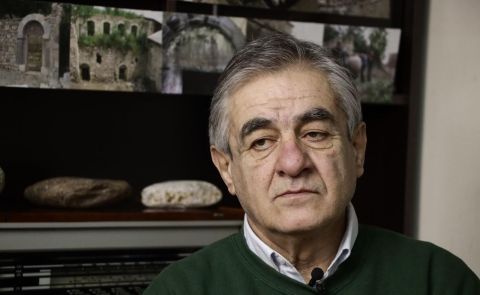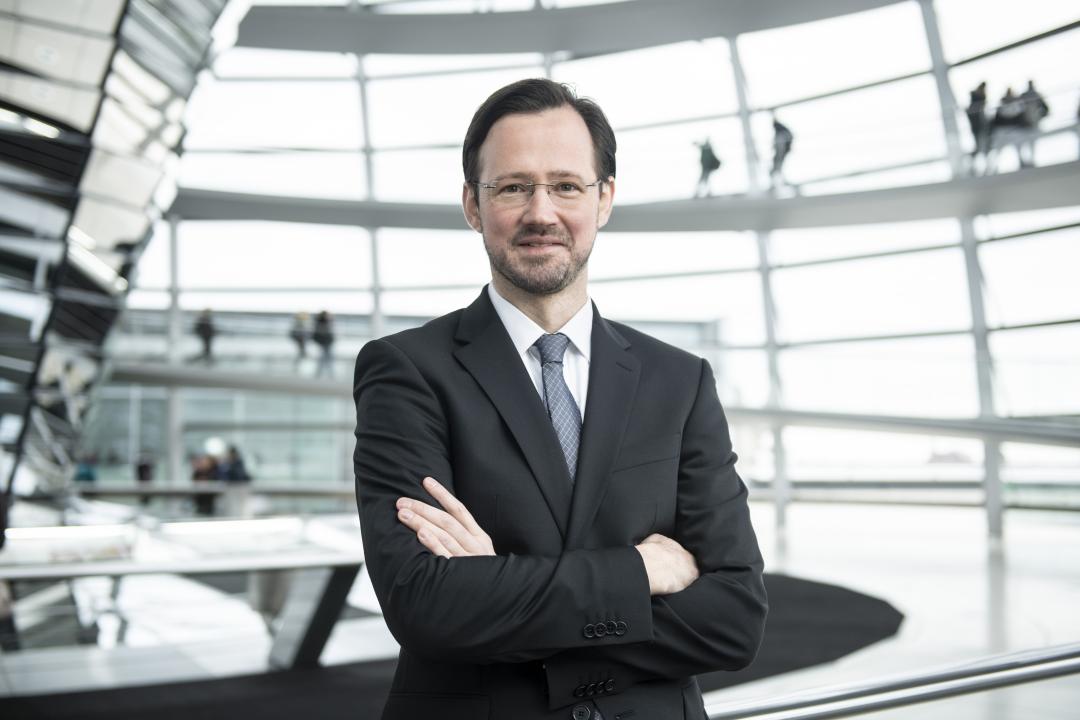
Visit in Yerevan: Interview with Coordinator Dirk Wiese

Dirk Wiese, the Coordinator for Intersocietal Cooperation with Russia, Central Asia and the Eastern Partnership Countries, visited Armenia from 2 to 4 March. In the capital of Yerevan, he held political talks with representatives of the Armenian government and parliament, met with civil society actors and visited the TUMO Center for Creative Technologies. In an interview with Caucasus Watch, coordinator Wiese summarized the most important results of his trip to Armenia.
Can you summarize the most important results of your trip to Armenia? What are the next planned milestones of cooperation with Armenia within the framework of the Eastern Partnership and at the German-Armenian bilateral level?
With my visit to Yerevan, I first wanted to show the support of the German Federal Government for Armenia's reform course. I learned about the progress of the reforms and current challenges to Armenia in my discussions with representatives from government, parliament and civil society.
The summit planned for June 2020 represents the next milestone for the Eastern Partnership. On the 10th anniversary of the Eastern Partnership in May 2019, the EU Commission launched an advisory process on the future of this EU neighborhood policy with the involvement of all parties, and the first results are slowly crystallizing.
As for German-Armenian relations, I'm really looking forward to autumn, when the first German TUMO Center based on the Armenian model should open in Berlin - a place of learning where young people can learn programming, designing and other creative techniques independently and free of charge. A nice symbol, because the Berlin TUMO Center shows that Germany and Armenia can learn a lot from each other.
How do you rate Armenia's implementation of the Comprehensive and Enhanced Partnership Agreement (CEPA) since the Velvet Revolution? What progress has been made, what obstacles still have to be overcome?
CEPA is an important milestone for the relations between the EU and Armenia. The agreement has so far only partially been in force, since not all EU member states have ratified it. We are all the more pleased that Germany was able to ratify CEPA last summer and hope that the remaining EU member states will follow soon.
However, the CEPA has already formed the basis for closer cooperation between the EU and Armenia in order to strengthen Armenian democracy and the rule of law for the benefit of the country’s citizens, to create better investment conditions in the country and to strengthen civil society.
The EU-Armenia Partnership Council last met in Brussels on 16 December. The EU endorsed reform progress in Armenia, particularly the new strategies for judicial reform and the fight against corruption. In my view, Armenia should continue resolutely on the path of reform - for the benefit of all Armenians.
How far are the EU and Armenia from a visa-free regime, like with the cases of Georgia or Ukraine? What other obstacles are there on this path?
I personally am a big fan of visa-free travel. The EU's visa liberalizations with Georgia, Ukraine and Moldova have brought noticeable further rapprochement between these countries and the EU. The Berlin youth now travels to the Tbilisi clubs to celebrate - and the Tbilisi youth to the Berlin clubs. That is an example of true understanding amongst nations.
Armenia unilaterally lifted the visa requirement for all EU citizens for short stays in 2013. In fact, there is great potential for the country, especially in the tourism sector. Personally, I hope that the EU will soon also give up short-stay visas for Armenians. However, opening a visa dialogue with this aim is a political decision of the EU member states. We still have to do some persuasion with one or more of the EU member states.
Since the Velvet Revolution, Armenia has been living in a “revolution mode”. The referendum on constitutional reforms is controversial in the country and the Council of Europe is sceptical of this process. The criminal prosecution of two ex-presidents is perceived differently. How do you assess the current political situation in the country?
The referendum planned for 5 April is the central domestic political issue in Armenia these days. Of course, all of my interlocutors did pick up on that topic. The crucial question is if the required quorum of 25 percent approval by all registered voters would be achieved.
In my conversations with the Armenian representatives I campaigned for the recommendations of the Venice Commission of the Council of Europe to be taken into account. Gianni Buquicchio, President of the Commission, said at the beginning of February that democratic culture and maturity require cautious institutions, good faith and mutual respect between the institutions of the state.
Investigating wrongdoing by political leaders in the past can be correct. In my opinion, it is important, however, that the Armenian government is upholding the principles of the rule of law and the separation of powers, thus protecting the achievements of the democratic revolution.
In your press statement, you mentioned that the constructive words of the Armenian government should also be followed by honest and serious efforts in relation to the Nagorno-Karabakh conflict. After your trip to Armenia, do you have the impression that this could happen soon?
Foreign Minister Zohrab Mnatsakanyan rightly praised in our conversation that Armenian and Azerbaijani journalists were able to travel to the other country and Nagorno-Karabakh last year. It was an important and successful confidence-building measure. There should be a lot more of these small but concrete steps - Minister Mnatsakanyan also saw it that way.
Germany is ready to accompany rapprochement between populations through civil society projects in order to achieve popular support for the negotiations between the governments. On the initiative of the Social Democratic Party (SPD), a total of 20 million euros are available for 2020 in the Federal Foreign Office for the program "Enhancing cooperation with civil society in the countries of the Eastern Partnership and Russia". So, there are funds that we could invest in appropriate peace projects.
Your trip to Armenia happened against the background of the outbreak of the new coronavirus in the region, which is why Armenia, which already has closed borders with Azerbaijan and Turkey, also had to tighten the border regime with Iran. How concerning is the situation in Armenia in regard to its economy?
First of all, the Armenian government - like the German Federal Government and governments around the world – is primarily concerned with the health of its citizens. On 23 February, Armenia had closed its land border to Iran, which is severely affected by the coronavirus, but allowed trucks to pass through it - after the drivers were checked.
During the time of my stay, the 2 and 3 March, it was not the right moment to address the possible consequences of the virus on the Armenian economy. First and foremost, it's about protecting the people.
It is known that the Armenian military doctors and other personnel are currently in Syria at the invitation of the Assad government. The security situation in Syria has intensified since the recent confrontation in the Idlib region. What stance do the representatives of the Armenian civil society and political elites you have met had in regard to the Armenian mission in Syria under the current circumstances?
The conflict in Syria is for Armenia very important. On the one hand, because of the geographical proximity of the two countries, and on the other hand, because of the Armenian minority living in Syria. Foreign Minister Mnatsakanyan stated in our conversation that developments in the Middle East therefore often directly affect Armenia's national interest.
In the case of the Syria conflict, this can also be seen from the fact that at least 15,000 ethnic Armenians have fled from Syria to Armenia in recent years. Since February 2019, Armenia has had a mission in Aleppo, which includes medical personnel and other personnel, such as minesweepers.
Foreign Minister Mnatsakanyan described this commitment as purely humanitarian, as Armenia has always done so in regard to the situation in Syria. What is certain is that dealing with the Middle East will always be a priority for Armenia's foreign policy.
See Also


Irina Mamulashvili: Electoral Interference is a Playbook, not a Recipe

Giorgi Gakharia: The EU Should Engage Georgia Despite Its Democratic Backsliding

Peace or Capitulation? Shahverdyan on Armenia-Azerbaijan Agreement and the Nagorno-Karabakh Crisis

Ali Mousavi Khalkhali: Iran Will Avoid Conflict in the Caucasus

